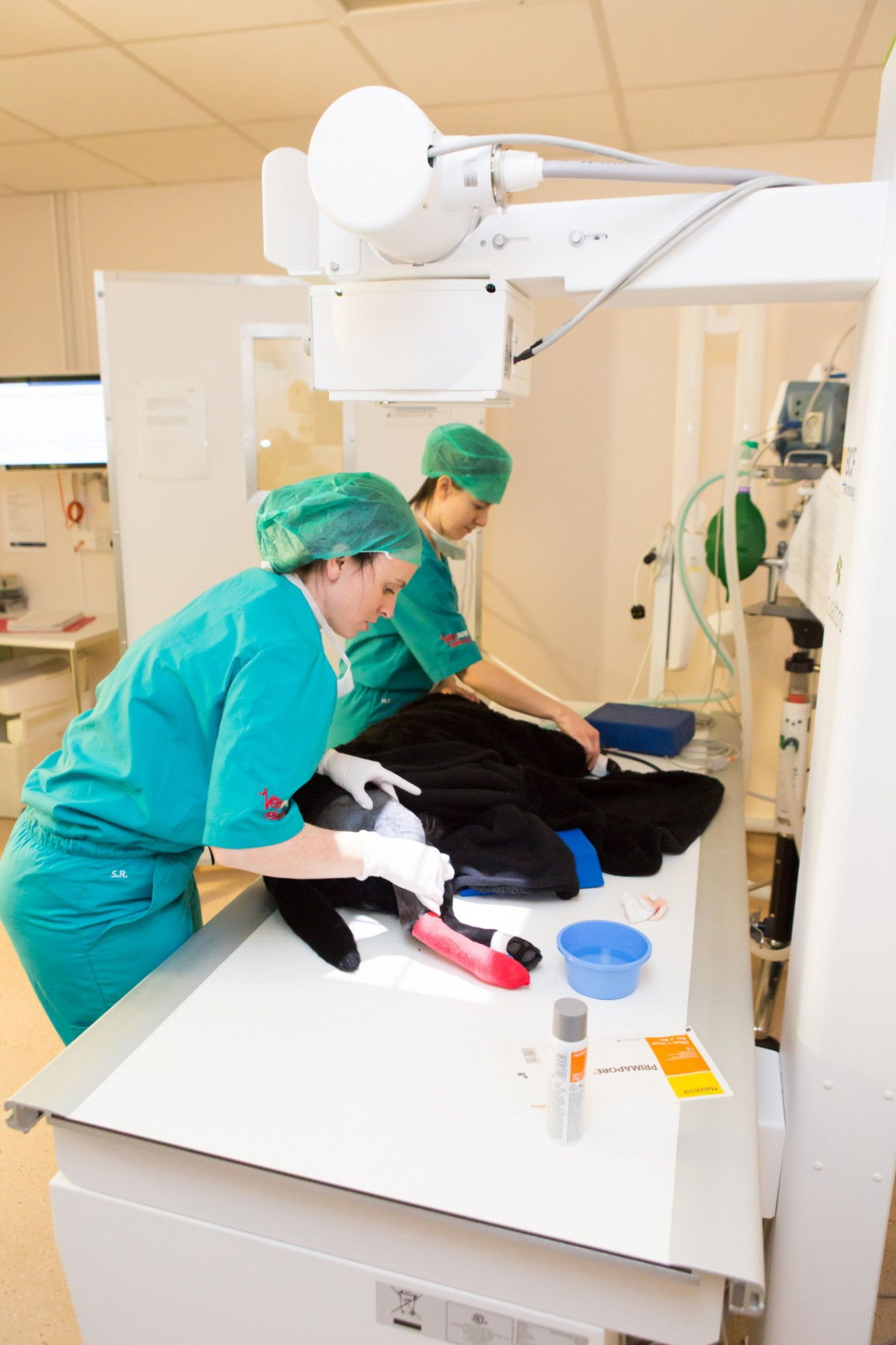Was there a particular experience or inspiration that led you to pursue your path of anaesthetics?
After graduation from Vet School, I felt completely overwhelmed in my first job, particularly during surgeries. I found it very challenging to be both responsible for the anaesthesia while trying to focus on the actual surgery. I undertook an RVC online anaesthesia CPD course to improve my knowledge and confidence with dealing with both aspects. After 18 months in first opinion practice, I wanted to experience a different side of veterinary care so pursued an internship. I was amazed by the anaesthesia team and the care they provided (I remember seeing my first nerve block for stifle surgery and was blown away by how effective it was). This inspired me to apply for a residency in anaesthesia.
Could you share some insights into the preparation and monitoring in process you follow when administering anaesthesia to animals of various species and sizes?
Preparation is key and a lot of work is done prior to administering any drugs. Discussion between the primary clinician, anaesthesia nurse and support nurse (theatre or discipline specific nurse) takes place. A thorough review of the history and previous investigations is performed. An anaesthesia problem list is then formulated and discussed with all staff involved in the anaesthetic. Finally, all equipment required for anaesthesia is organised and carefully checked. Monitoring wise all sedated and anaesthetised are closely monitored by a dedicated trained nurse or vet. Every patient will also be monitored by multi parameter monitors measuring ECG, pulse oximetry, capnography, blood pressure and temperature. More advanced monitoring techniques, such as invasive blood pressure, are also regularly performed.
Anaesthesia comes with inherent risks. How do you manage and mitigate potential complications during and after procedures to ensure the safety of the animals under your care?
We plan, prepare and anticipate for potential problems before they potentially arise. Communication between everyone involved is also vital to ensure everyone is aware of what to do if a complication occurs. With all cases, we perform a safety checklist at various timepoints. One main purpose of this is for the team to pause and verbalise potential complications before continuing with the procedure. I am fortunate to work with an experienced, dedicated team of vets, nurses and ACAs and we all work together with the patient as our primary focus.
Can you discuss your experience working within a veterinary team? How do you collaborate with veterinarians, technicians, and other professionals to provide optimal patient care?
This is one of my favourite parts of the job. I get to spend my day with a variety of different staff from different departments. I get to have complex clinical discussions with other specialists and also more practical patient focused discussion with the nursing team. I really enjoy working closely with all members of the hospital with our primary focus being on the patient’s wellbeing and welfare.
In the context of advancements in veterinary medicine, how do you stay updated with the latest anaesthetic techniques, equipment, and safety protocols?
I read widely to keep myself updated with current literature and research. I am also fortunate enough to have a generous CPD budget which enables me to attend conferences and courses.
What advice would you give to aspiring anaesthetists who are considering a career in the field?
My best advice would be to get in contact with a veterinary anaesthetist and ask to see practice with them. Nearly all referral centres will have veterinary anaesthetists now and they are a passionate group of people! They are dedicated to veterinary anaesthesia and often love to share their skills and knowledge with other similarly interested people.
Given the high level of responsibility within your role, how do you unwind outside of work?
I run, a lot! Probably too far but I enjoy being out in the hills and glens of Scotland running. After a couple of years of running shorter distances, I am back training for ultra runs again.
Lastly, in your opinion, what sets Vets Now apart from others interns of the quality of care and services provided?
I think because Vets Now Glasgow is a true 24-hours hospital, the care provided to the hospitalised patients is second to none. I have also never worked with proper ECC department before, and I have learnt a huge amount from them. Vets Now have a real passion for educating the wider veterinary industry in emergency and critical care through congresses and courses so that also makes it an inspiring place to work.



